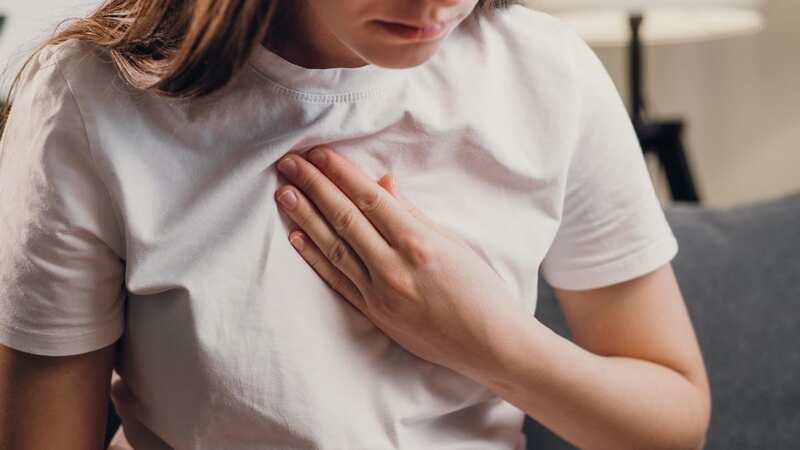Struggling with 'air hunger'? Neurologist explains little-known anxiety symptom

Struggling to catch your breath can be terrifying, and it can make your anxiety even worse.
The feeling that you cannot quite fill your lungs with enough air and are short of breath can, in itself, be incredibly anxiety-inducing. This symptom can also be caused by anxiety, in those suffering from the mental health condition, creating an ongoing 'fight or flight' loop in your body that can be hard to stop. A neurologist has explained exactly what 'air hunger' - scientifically known as dyspnea - is and just how it manifests in your body - as well as how you can try and relieve this symptom of anxiety.
Chiropractic Neurologist Dr Tommy Pang explained just what the symptom is on his TikTok page - @dr.tpang and noted that it can be one of the "worst" symptoms of anxiety for those who suffer from it. "You try to breathe, but your breath doesn't feel like it's enough.
'You force a yawn but still can't get the air to fill your lungs. It's like there's no oxygen in the air or like your lungs are too weak," the medical expert and content creator explained.
He added that this can also be a symptom of Postural tachycardia syndrome - PoTS - which occurs when someone's heart rate rapidly increases as they go from sitting or lying down to standing up, which can also make people dizzy and lightheaded, feel faint, have chest pains or heart palpitations and make them shake or swear - per the NHS.
 Teachers, civil servants and train drivers walk out in biggest strike in decade
Teachers, civil servants and train drivers walk out in biggest strike in decade
Tang advised in a follow-up video that people can manage this symptom by sitting down and looking at a circle on the wall that is at their eye level, before starting to very slowly move their heads from left to right. Focusing on the circle, throughout the entire exercise, Tang explains they should then stand up very slowly and claims that this may help "stabilise your nervous system" and minimise the sense of breathlessness you are experiencing. However, he says never to try this one if you're feeling dizzy and to stop immediately if that symptom arises.
The NHS explains that breathlessness can be caused by anxiety, and can create it. "Breathlessness can often cause anxiety and feelings of panic. Anxiety tends to make the sensation of breathlessness stronger which in turn leads to more anxiety."
This can create a kind of catch-22 for people suffering from shortness of breath, they explain, "If a person is anxious about being breathless then there may be many situations that activate the ‘fight or flight’ response. When a person is anxious about many things or if the threatening experience is ongoing, such as breathlessness, then the fight or flight response may be activated again and again. Repeated activation of the 'fight or flight' response is hard work on the body and can keep anxiety going."
A study has found that sleep deprivation can worsen the symptoms of air hunger, with participants responding that they felt smothered and suffocating, and could take shallow breaths more often when they hadn't had enough sleep. Research has repeatedly shown that sleep deprivation can also make anxiety worse, alongside many other mental health conditions.
The NHS lists improving your sleep as one of the main ways you can manage your anxiety, alongside talking to a mental health professional and loved ones, practicing mindfulness techniques that focus on calming your breath, eating a healthy, balanced diet, and regularly undertaking exercise.
Do you have a story to tell? Email: emma.mackenzie@reachplc.com
Read more similar news:
Comments:
comments powered by Disqus
































